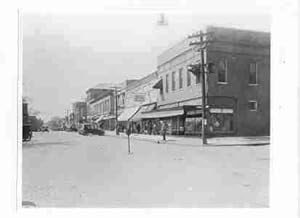But the conversation between a mathematician and a philosopher on science and religion was something. They were both smart and civil, the theist mathematician (Jim Bradley) sounding like Michael J. Fox and the Darwinian humanist philosopher (Michael Ruse) responding to the tired old question of how nontheists "ground" their ethics by reminding us to heed the wisdom of le Bon David.
Ms. Tippett: But I think the question is, um, where is your ethical sensibility rooted, or what...
Dr. Ruse: I think it’s rooted in my psychology. I mean, I’m a Humian. I mean, ultimately, I’ve — David Hume says you can do all this philosophy you like, but it, you know, you end in skepticism, but fortunately, you know, I dine, I converse with my friends, I play a game of backgammon, uh, when I get back to my study, it all seemed cold and strained. And basically that’s where I’m at. I personally think that, you know, psychology — I don’t go through life worrying about whether the world is going to end tonight.
I don’t go through life thinking, okay, I’m a Darwinian, it’s okay for me to go out and rape and pillage, and, you know, and get away with it, because I’m an evolved human being. So why would I do anything else? So, at a certain level, I know Jim would disagree with me, I think Christianity is irrelevant. You know, in fact, it’s just something of a...
Ms. Tippett: You mean in terms of...
Dr. Ruse: ...scab on the situation?An irrelevant scab! I'll be using that.
Today, by the way, is the anniversary of the most famous historical public debate between a theist and a Darwinian, the notorious Wilberforce-Huxley exchange. Bishop versus Bulldog. That was really something.
In the end it will be a win for the Darwinians. At the far end, of course, there will be no victories to tally because there will be no victors left on the field. My favorite tweeter put it this way:There is no transcript of the day's events, but one exchange has reached the status of legend. Wilberforce asked Huxley whether he was descended from an ape on his father's side or his mother's, and Huxley retorted that he was not ashamed to have a monkey as an ancestor, but he would be ashamed to descend from someone who used his great gifts to obscure the truth. Most accounts include some version of this story, but according to Hooker, that may have been all that most people heard. In his report to Darwin (who was too ill to attend), Hooker wrote:"Well, Sam Oxon got up and spouted for half an hour with inimitable spirit, ugliness and emptiness and unfairness ... Huxley answered admirably and turned the tables, but he could not throw his voice over so large an assembly nor command the audience ... he did not allude to Sam's weak points nor put the matter in a form or way that carried the audience. The battle waxed hot. Lady Brewster fainted, the excitement increased as others spoke; my blood boiled, I felt myself a dastard; now I saw my advantage; I swore to myself that I would smite that Amalekite, Sam, hip and thigh if my heart jumped out of my mouth, and I handed my name up to the President as ready to throw down the gauntlet."Hooker was the closing speaker of the discussion, and he felt that his speech had carried the day (of course, Wilberforce and Huxley each felt the same way about their own speeches). In the end, though each side claimed victory, most accounts chalk it up as a win for the Darwinians. Writer's Almanac
Not a sentiment to dwell on, in the sweet light of dawn. The back of everything can wait. What would David do? Fire a rocket, eat a hot dog, play some backgammon or watch some futbol and baseball with friends."Truly the light is sweet, and a pleasant thing it is for the eyes to behold the Sun." But remember... "Back of everything is the great spectre of universal death, the all-encompassing blackness."
Happy Independence week.







